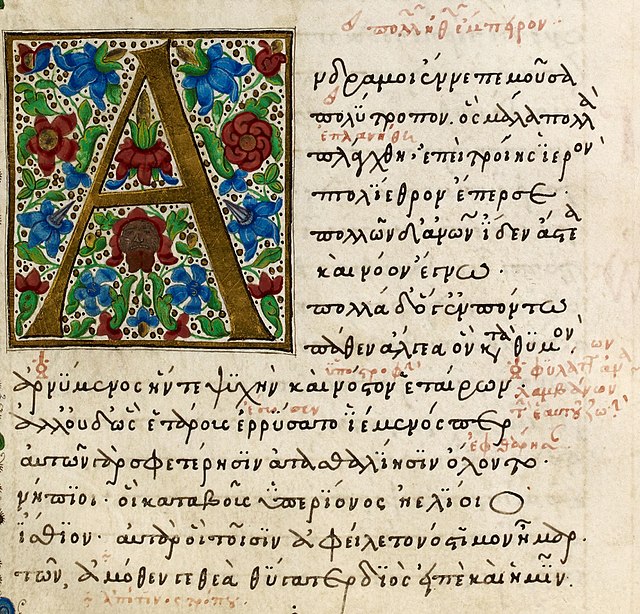Penelope is a character in Homer's Odyssey. She was the queen of Ithaca and was the daughter of Spartan king Icarius and Asterodia. Penelope is known for her fidelity to her husband Odysseus, despite the attention of more than a hundred suitors during his absence. In one source, Penelope's original name was Arnacia or Arnaea.
Penelope by Leonidas Drosis, National Glyptotheque of Greece
Penelope. Drawing after Attic pottery figure.
Penelope encounters the returned Odysseus posing as a beggar. From a mural in the Macellum of Pompeii
Penelope by Franklin Simmons (1896), marble. On display at the De Young Museum in San Francisco.
The Odyssey is one of two major ancient Greek epic poems attributed to Homer. It is one of the oldest extant works of literature still widely read by modern audiences. As with the Iliad, the poem is divided into 24 books. It follows the Greek hero Odysseus, king of Ithaca, and his journey home after the Trojan War. After the war, which lasted ten years, his journey from Troy to Ithaca, via Africa and southern Europe, lasted for ten additional years during which time he encountered many perils and all of his crewmates were killed. In his absence, Odysseus was assumed dead, and his wife Penelope and son Telemachus had to contend with a group of unruly suitors who were competing for Penelope's hand in marriage.
15th-century manuscript of Book I written by scribe John Rhosos (British Museum)
A mosaic depicting Odysseus, from the villa of La Olmeda, Pedrosa de la Vega, Spain, late 4th–5th centuries AD
Charles Gleyre, Odysseus and Nausicaä
Odysseus Overcome by Demodocus' Song, by Francesco Hayez, 1813–15








